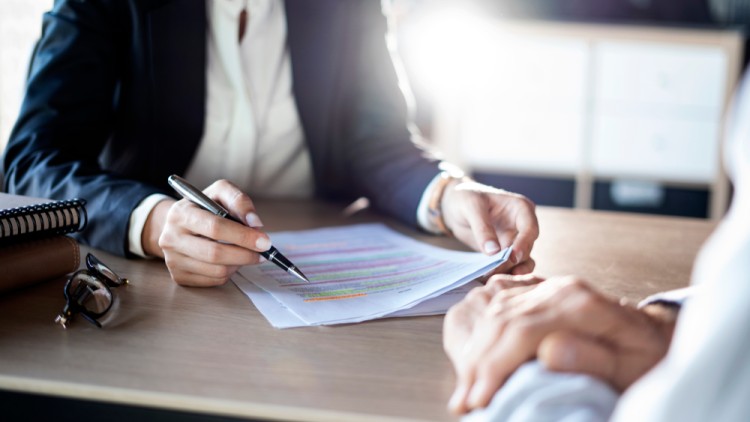
Booking a consultation with a criminal defence lawyer can be stressful and intimidating, especially if it is your first time seeking legal advice due to charges against you. As noted by the Victorian Legal Services Board & Commissioner, the first thing you need is a lawyer with expertise in the type of legal issue you’re experiencing, such as a matter of criminal law.
Why is it so important to prepare for a consultation with a criminal lawyer? Planning and organisation will ultimately save time and help the lawyer prepare to represent you. Put simply, it will become a smoother, fluid, and more productive process.
This article will explain what a good criminal defence lawyer looks like, what to expect at a first meeting, and how to access the best legal representation. After all, having someone you can trust in your corner is critical.

At this initial stage, a criminal lawyer’s top priority is gathering as much information as possible about your case. Here, they may discuss the specifics of these criminal charges, such as the date, location, details of your charges, and other essential details.
There will be a discussion on whether you have a prior criminal history, any witnesses to your case, and evidence for and against you. Always be honest and write everything down that you remember. If the matter proceeds to trial, it may not happen for many months after the time of arrest, so a criminal lawyer will benefit from knowing your state of mind at the time of the event and what you were doing beforehand.
Make copies of copies relevant to your case, write down the outcome you hope to achieve or arrange for a friend, relative, or support person to go with you.
The Summons or Court Attendance Notice (CAN) sets out the offences you have been charged with, who the informant (an officer who charged you) is, and a fact summary that led police to charge you with an offence.
This notice has the name of the police officer/informant, such as Constable John Smith, and the location of the police officer. It also sets the location and date of the court where you’ll go about the matter.
Police facts are the versions of events and descriptions of the offences according to the police. Documents from the police you need to gather include prosecution notices, the statement of material facts, and the bail undertaking or court hearing notice.
Often, it is common for a defendant to disagree with police facts, and a criminal lawyer will gather this information. Additionally, your lawyer must know whether you attended a police-recorded interview.
In some circumstances, police may arrest and charge you at the police station. Police will determine whether to release you on bail or whether you need to appear in Court.
Known as “Police” bail, this is a decision to release you provided that you comply with bail conditions, including attending Court for your offences. A form will be signed acknowledging these conditions, such as a document by the police with reasons for granting bail.A lawyer will explain to you your obligations and whether or not you can change these conditions. If you would like to learn more about applying for bail, have a read of bail applications and how a criminal lawyer can help.
An intervention order (IVO), such as an interim IVO, details a person needing protection. According to The Magistrate’s Court of Victoria, there are two types of intervention orders: personal safety and family violence intervention orders. This order could list children in a relationship due to a domestic dispute.
An IVO will set out its conditions for the alleged offender, such as contact with a protected person or sharing a residence with the protected person. A lawyer will need a copy of your IVO to advise you legally.
A brief is a collection of statements and evidence that police will use against your evidence. This brief could include witness statements, police statements, Domestic Violence Evidence in Chief victim statement (DVEC) using a police-issued BWC, or CCTV footage. The DREC may replace all or part of a written statement, and be played in court as the victim’s evidence-in-chief. Victims must be 18 years or older, not appear to have a cognitive impairment, and provide informed consent.
A criminal lawyer will review this brief, determine the strength of the prosecution against you, and provide detailed advice on preparing your case.
Other important legal documents include affidavits, restraining order details, written information describing your background and professional life, property search papers, or details on an upcoming court date. Depending on your case stage, you may have no paperwork. You must present your lawyer with all the court documents if you have had your first hearing.
Have you been accused of something you didn’t do? If you need a reliable criminal lawyer in Windsor, Croydon, Preston, or Dallas, May Lawyers are available 24/7 for legal advice.
Following your charges, you may have many questions regarding your case, so it can be helpful to prepare these in advance.
You also want to prepare a statement, such as the truth of events that led to the criminal charges. Due to attorney-client privilege, this protects all the information you share with them, including being shared with a third party. Be open with your lawyer.
Now that you’re prepared with the right documents, what will a criminal defence lawyer do to help you with your case?
Depending on the charge you’re facing, you may be entitled to rights you aren’t aware of. A criminal lawyer will clarify this by studying the prosecution brief and providing an objective assessment of the facts for a strong prosecution case.
A lawyer will highlight the importance of not speaking to police or other individuals without an attorney. It is important to know the case against you, what the police say about you, and comprehend witness statements and incident reports. After all, once you understand the laws and their landscape, you will be in a better place to respond to them.
Reviewing the evidence and building a case, a criminal lawyer will represent you in court with a strong defence strategy. A lawyer will explain the potential consequences of a plea deal so you can decide the outcome.
Strategies can include innocence and reasonable doubt, an affirmative defence, mistaken identity, accident or lack of intent, self-defence, mistake of fact, constitutional violations, and more.
A lawyer will advise you on the best course of action to prepare you for the trial. This way, you will understand all legal processes and what to expect in court. For example, if you have been accused of assault, you may have a defence due to provocation or having acted in self-defence. A lawyer may also suggest a plea bargain or plea deal, an agreement with the prosecution where you plead guilty for a reduced sentence.
Every case is different, and a lawyer will explain your options so you can make an informed decision.
Like any service provider, a lawyer has obligations to people who use their services. For example, lawyers are obliged to act in your best interests when representing you, such as by giving you honest advice. With this in mind, what are some examples of professional conduct?
Are you, your family, or your business facing a dispute? As a criminal lawyer supporting Moorabbin, Ringwood, Heidelberg, Sunshine, and residents across Melbourne, you don’t need to worry about the outcome of your case.
Preparing for your first meeting with a criminal lawyer doesn’t need to be a hassle. When you face losing your reputation or even your liberty, you need someone you can rely on. Bringing a decade of experience in criminal law, Will May is one of the few lawyers recognised by the Law Institute of Victoria as an Accredited Specialist in the field.
Compassionate and professional, our strong legal team at May Lawyers can support you with traffic offences, drug offences, bail applications, and more. Contact us today for obligation-free legal advice and a free case consultation.